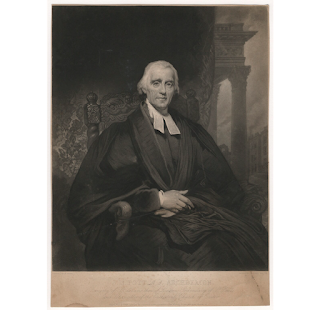"The sober duties of religion": A Hackney Phalanx sermon for the Fourteenth Sunday after Trinity
From A Course of Sermons, for the Lord's Day throughout the Year, Volume II (1817) by Joseph Holden Pott - associated with the Hackney Phalanx - an extract from a sermon for the Fourteenth Sunday after Trinity. With its emphasis on "the sober duties of religion", as opposed to the dramatic and apparently miraculous, this again exemplifies Old High piety:
The constant, uniform, and steady disposition of the conduct, which is so produced, becomes the surest testimony of the Christian character, and the fruits of the Spirit manifest their own connexion with a state of grace. To such evidences, our Lord and his Apostles constantly referred. They taught men to regard them in preference to gifts of miracle; so that we find the best and most profitable things are still open to our choice, and left free to our pursuit. It is possible indeed for men to affect much knowledge in the ways of truth, and to look with some disdain on others, from some high notion of their own attainments; but a sober, pious, and well-ordered life, useful to others, and kept clear of all vicious habits and ill practices, by which the heart would be defiled, the conversation tainted, and the manners, dispositions, and deportment, turned to evil; such a life, exercised in all upright dealing, in all self-government and charity, in all sound faith, in the stated offices and known duties of religion, cannot well be dissembled. It will cost more pains, and offer more restraints, than dissemblers will be ready to approve. Such a life is the genuine fruit of that spiritual influence, concerning which the text speaks. Such are the surest tests of adherence to that doctrine, the end of which is a reasonable service, and the sum of which is an humble and sincere obedience to the will of God. When men resort to other tokens as the standard of their faith, and the witness of their spiritual growth, there is always much room for delusion. Our Lord, then, constantly prescribed the substantial parts of godliness, and the sober duties of religion, for the basis of that conduct, concerning which we now treat.




Comments
Post a Comment